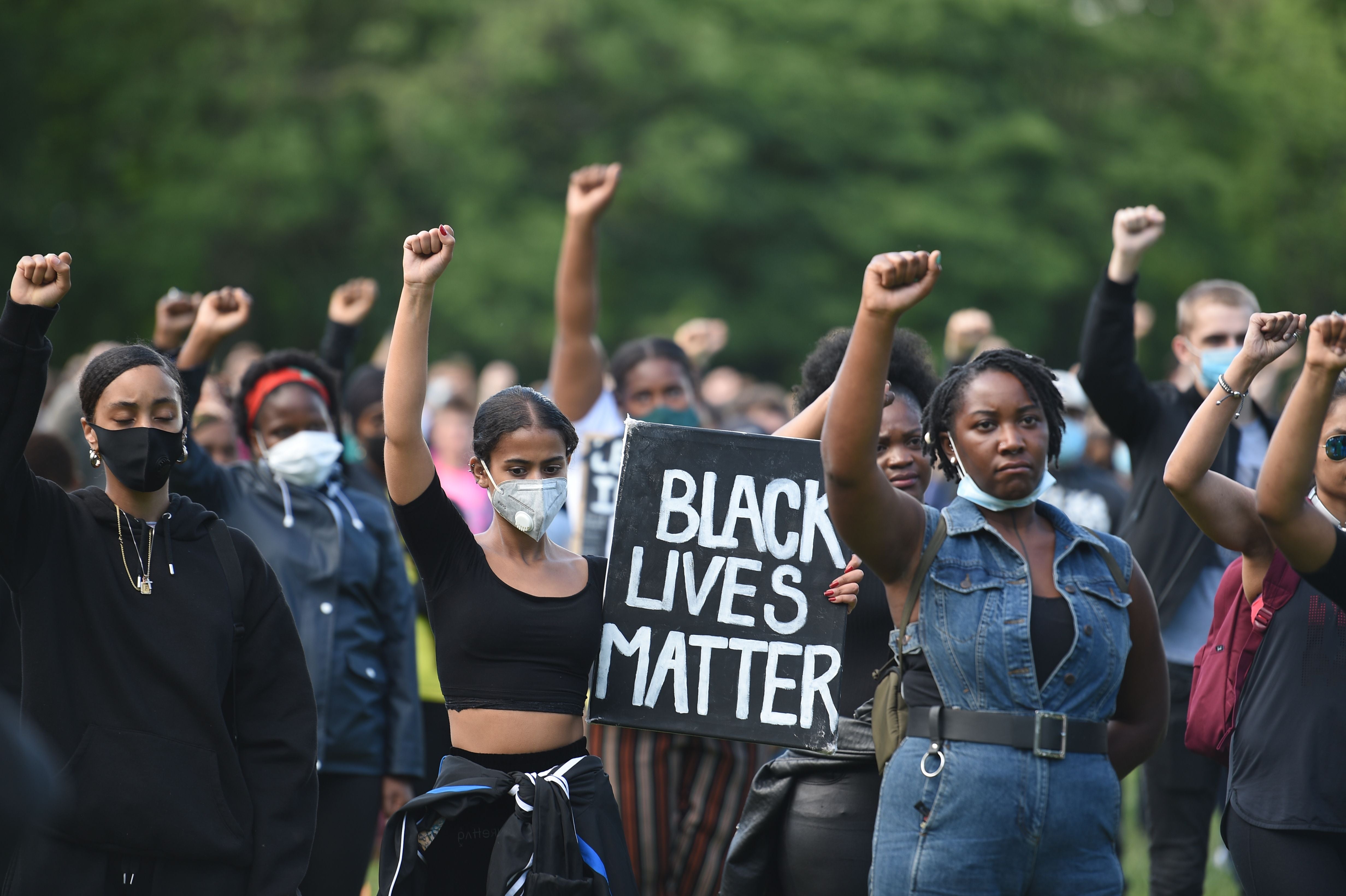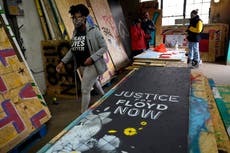I’ve faced racism throughout my life – education and compassion are key to making progress in 2021
The Black Lives Matter movement has helped build a collective voice, now it is time to make sure action towards equality is actually implemented


Your support helps us to tell the story
From reproductive rights to climate change to Big Tech, The Independent is on the ground when the story is developing. Whether it's investigating the financials of Elon Musk's pro-Trump PAC or producing our latest documentary, 'The A Word', which shines a light on the American women fighting for reproductive rights, we know how important it is to parse out the facts from the messaging.
At such a critical moment in US history, we need reporters on the ground. Your donation allows us to keep sending journalists to speak to both sides of the story.
The Independent is trusted by Americans across the entire political spectrum. And unlike many other quality news outlets, we choose not to lock Americans out of our reporting and analysis with paywalls. We believe quality journalism should be available to everyone, paid for by those who can afford it.
Your support makes all the difference.The death of George Floyd last summer was one injustice too many. The Black Lives Matter movement that followed drove awareness – on a global level – of what it is that black people have been facing forever, on a daily basis.
A positive that came from such a deeply-upsetting event was the forming of a collective voice. The attention that was gained by those with influence and a global following – like Lewis Hamilton – sharing views on the huge injustices faced by black people and marginalised groups was important. For the first time ever rather than lone or isolated opinions trying to make the noise needed, there was a feeling that everyone has come together.
The Black Lives Matter movement created a sense of unity. Everybody talking about something that, unfortunately, hasn’t been given the attention historically that it should have. So, in 2021 – what comes next? Apart from awareness, how do we use some of those positives created to drive change?
A lot of what we have seen so far is great. Taking the knee for example, it’s symbolic. But to genuinely make a difference, what’s next must come from deep inside.
But I know how it feels. My own life story. Yes, I have experienced how the privileged live. The highs in my sports career, the red carpets that I have walked down, but as a black man, I have also experienced the lows. The way that people have walked across the street to the other side of the road rather than cross my path, or being pulled over by the police. Being made to feel like my life doesn’t matter because of the colour of my skin.
These are just a couple of examples of things that happen to black people every single day, and so many people don’t believe that such behaviour exists.
Some of the biggest moments in your life that should have been highs were anything but. Early in my rugby career I remember one game in particular, the feeling of euphoria that every player gets running onto the field, instantly change like a blow to the chest as I was faced with thousands of people chanting racist slurs.
Worse still, not just the effect that it had on me, but my Mum, a white woman, in the crowd having to experience this with nobody understanding why she was upset – no connection between the two of us being made.
Can you imagine how that feels? This is what is needed in order to make change. We need empathy and it needs to be two-way. Both sharing these experiences and creating the compassion and understanding to put ourselves in other people’s shoes.
So, let’s start by addressing what racism actually is – so little is understood by those that aren’t affected by such issues, and it is ignorance that stalls progress in each of these areas. And it is not just racism. The same approach is necessary for all aspects of diversity and inclusion.
Coming back to racism, I truly believe that only a small number of people are in fact inherently racist. But it’s the systemic barriers and ignorance around the topic that we are faced with globally that makes it seem almost impossible change. And people are scared to talk about it. Scared of saying the wrong thing. Or worse, dismiss when racism occurs or ignore it.
So, we have to open up the conversation in the same way that we have about mental health. It can’t be a taboo subject. It’s personal. How can people be expected to understand how racism feels unless it actually happens to you, unless it’s something that you are dealing with every day? We know it’s all too easy to see something as "not our problem".
We also need education from a young age. To avoid the ignorance that exists we need education on the differences between us all. Black history needs to be part of history lessons (as well as the history of other marginalised groups). It's only then the understanding of differences will be ingrained, and we will then be curious around them too.
As adults, difference makes us act differently. It subconsciously makes us see people as "other" and we need to foster a better understanding of why some people think or interact in a certain way. Then we can do something lasting about it.
It’s going to take a time and it needs to be a natural evolution – change definitely won’t work if it’s forced too hard. However, those in privileged positions can help with the speed of change if they give their support, and that is why we also need representation in positions of influence across the board.
If the chairman of my early rugby club had been black instead of white would the discrimination that I experienced have been dealt with differently? Absolutely.
Here’s to a future of greater compassion and understanding across all areas of discrimination. Does it really need to be so difficult for all people to be treated equally?
Jason Robinson OBE was the first black player to captain the men's England rugby union team. He is now non-executive director at Diversity and Inclusion firm, In Diverse Company



Join our commenting forum
Join thought-provoking conversations, follow other Independent readers and see their replies
Comments